Are Virtual Phone Numbers Legal in India? Here's What You Need to Know
Are virtual phone numbers legal in India? With strict KYC, TRAI oversight, and OTP quirks, India makes it tricky. This guide clears the confusion and shows how Supa Dial keeps you compliant.

Are virtual phone numbers legal in India? That is a question buzzing from Delhi call centers to Goa co-working spaces. India has one of the strictest telecom environments in the world, and it leaves freelancers, startups, and even students scratching their heads. One app says your number is fine, another rejects it faster than you can order chai at the tapri.
Add in government crackdowns on spam and VoIP misuse, and suddenly something as simple as making a call feels like navigating Bengaluru traffic at rush hour. This guide cuts through the chaos and shows what the law actually says about using virtual phone numbers in India.
Why People In India Ask If Virtual Phone Numbers Are Legal
The question pops up across WhatsApp groups, Reddit threads, and even chai breaks in offices. People in India face unique hurdles when it comes to virtual phone numbers, from strict government regulations to the everyday pain of banking OTPs.
The result is that users feel unsure whether they’re even “allowed” to use a number that isn’t tied to a physical SIM. Here are the biggest triggers for that worry.
Banking And OTP Verification
One of the most common frustrations is that virtual phone numbers often fail to receive OTPs from banks or government apps. In India, almost everything runs on OTPs — from ordering food to paying bills — so getting blocked here feels like being locked out of life itself.
Users wonder if the issue is a technical limitation or a legal barrier. The confusion leads many to ask directly if these numbers are even legal.
Government Regulations And TRAI Rules
India’s Telecom Regulatory Authority (TRAI) keeps a close watch on who uses numbers and how. They require strict KYC, limit VoIP routes, and don’t take kindly to anything that looks like spam.
For startups and freelancers, this creates a gray area where you want flexibility but also fear crossing an invisible line. That mix of ambition and regulation fuels the endless question: Are virtual phone numbers legal in India?
Business Credibility With Clients
Freelancers in Mumbai or small businesses in Pune want numbers that make them look professional. But there’s a worry: will clients think a virtual number is sketchy, or worse, not allowed under Indian law?
When your livelihood depends on closing deals over calls, even small doubts feel huge. The fear of losing credibility is enough to make people second-guess using a virtual line.
Fear Of Penalties
Nobody wants to get on the wrong side of Indian telecom authorities. Stories about shutdowns or hefty fines for misuse spread quickly, even if they’re often exaggerated.
The perception that virtual numbers might be “illegal” adds to that anxiety. It is not just about legality, but also about the fear of suddenly losing your only line of communication.
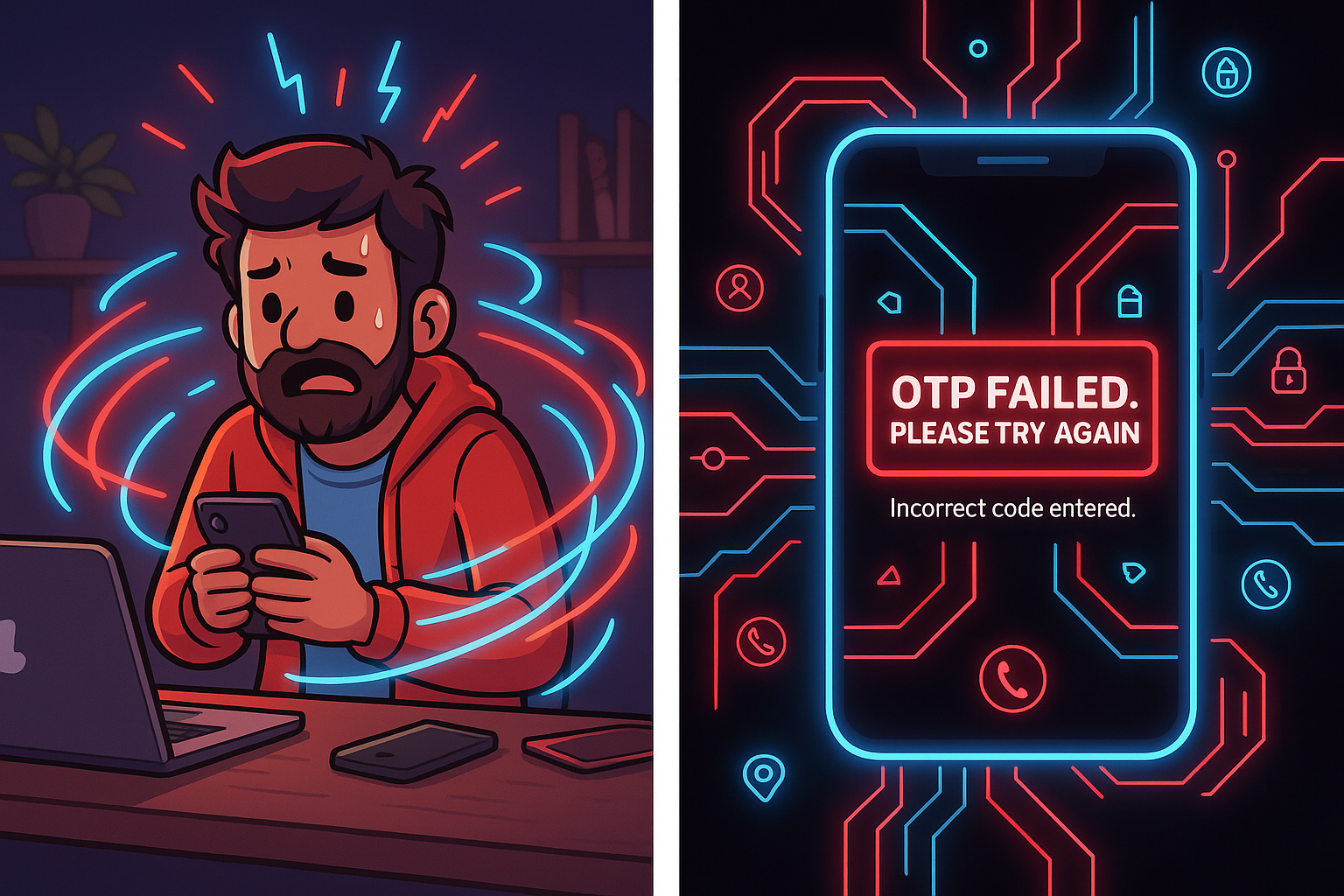
India’s Rulebook For Virtual Numbers
India does not leave much room for guesswork when it comes to telecom. The government wants to know who is behind every number, how it is used, and whether it complies with national security and consumer protection laws.
This means virtual numbers fall under the same spotlight as traditional SIMs, with strict checkpoints along the way. Here are the main areas that decide whether your virtual number is legal in India.
KYC And Registration
In India, every number must be tied to a verified identity. Providers are required to collect documents like Aadhaar, PAN, or a passport before activating the service.
This process helps the government track usage and block misuse, but it often feels like extra red tape for freelancers and travelers. Still, without proper KYC, a virtual number in India is not just unreliable, it is noncompliant.
TRAI Oversight
As mentioned above, the Telecom Regulatory Authority of India (TRAI) sets the rules for how calls and messages flow. They are strict about VoIP, making sure providers don’t bypass licensed networks.
This oversight means companies offering virtual numbers need to stay updated on every amendment, or risk penalties. For everyday users, it explains why some providers work smoothly and others seem to hit endless walls.
Caller ID And Spam Rules
India has cracked down hard on spam and misleading caller IDs. If your number shows up incorrectly or gets flagged for nuisance calls, regulators move fast. The focus is on protecting consumers from fraud, which is why caller ID integrity is taken so seriously. A compliant virtual number is one that shows up clean every time.
Data Privacy And Security
India’s new telecommunications act and data rules are tightening how customer information is stored and shared. Virtual numbers are expected to meet the same security standards as mobile carriers.
For users, this means your provider should clearly explain how your data is protected. If they cannot, you risk both privacy issues and compliance trouble.
How Supa Dial Keeps You Compliant In India
India’s telecom laws can feel heavy, but that is why Supa Dial is built to handle the compliance side for you. We focus on keeping your number legal, safe, and useful while you focus on studying abroad, freelancing, or running your business.
Instead of worrying about TRAI regulations or OTP failures, you can just get on with your calls. Here’s how we keep you on the safe side in India.
Local Presence Numbers That Pass KYC
We provide numbers that can be registered with a valid identity, keeping you aligned with India’s strict KYC rules. Whether you are using Aadhaar, passport, or PAN, you can connect without wondering if your number is “fake.”
Supa Dial ensures your line is recognized as legitimate for personal or business use. That keeps you compliant from day one.
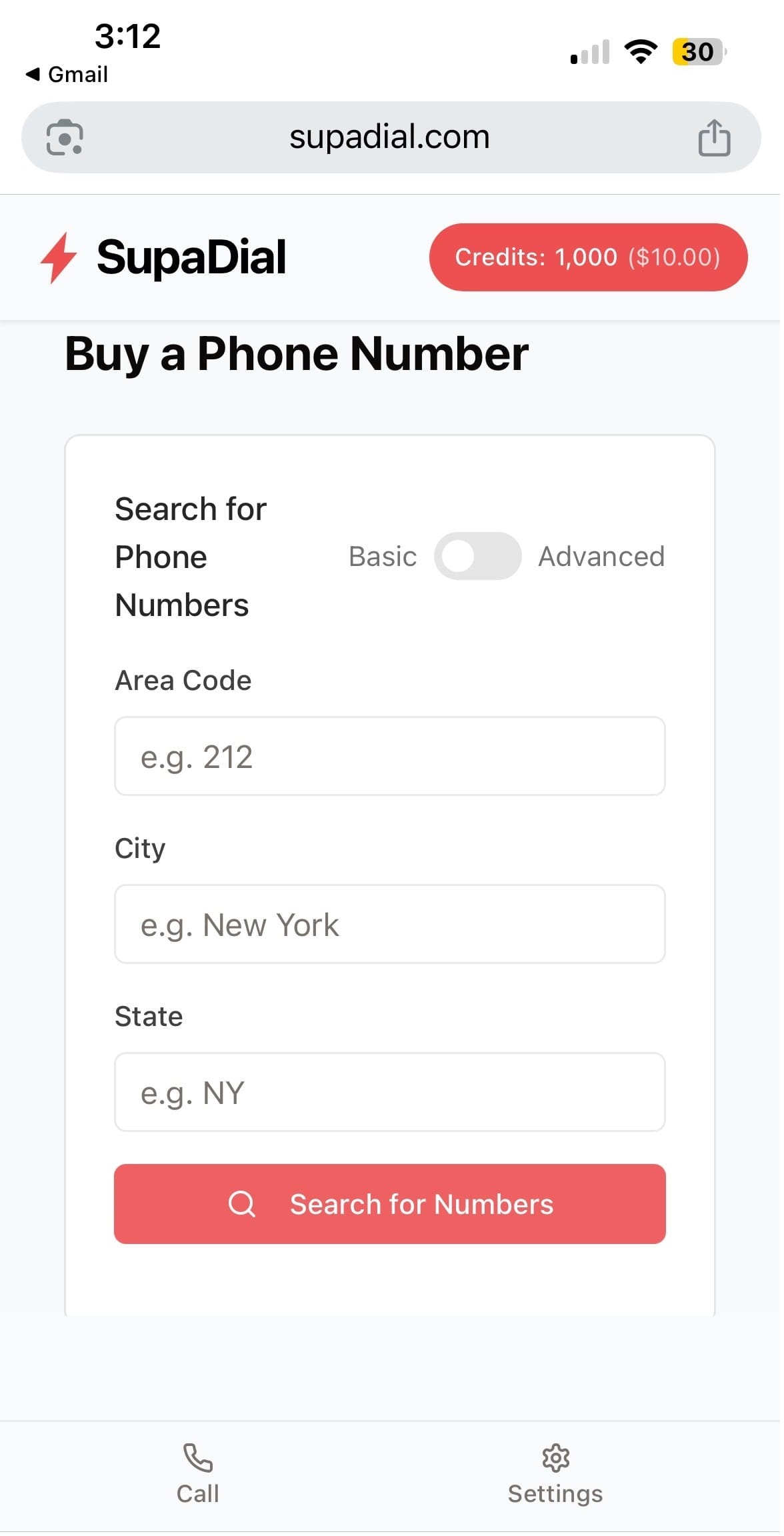
Pay As You Go For Transparency
Hidden billing tricks are one of the things TRAI pushes back against. With Supa Dial, you load credits, you spend them, and you see exactly what is happening. No guesswork, no surprise charges, and nothing that makes regulators suspicious. This is transparency that works for both you and the law.
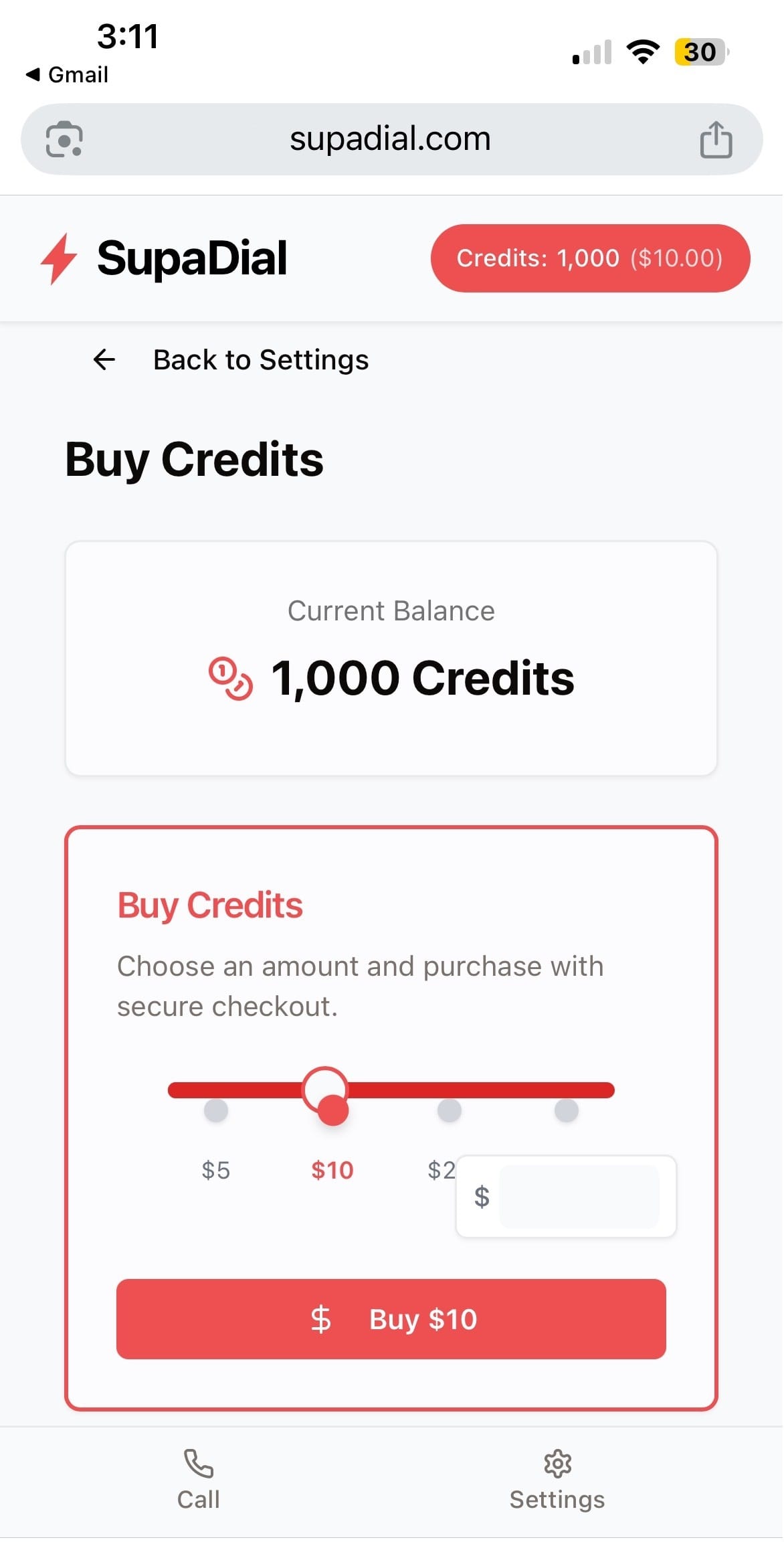
Caller ID That Builds Trust
India is serious about spam and caller ID. Supa Dial makes sure your number shows up correctly every time, so you look like a trusted caller instead of a scammer. That is not only good for compliance, but it is also good for getting people to actually pick up. Your identity stays clean and clear.
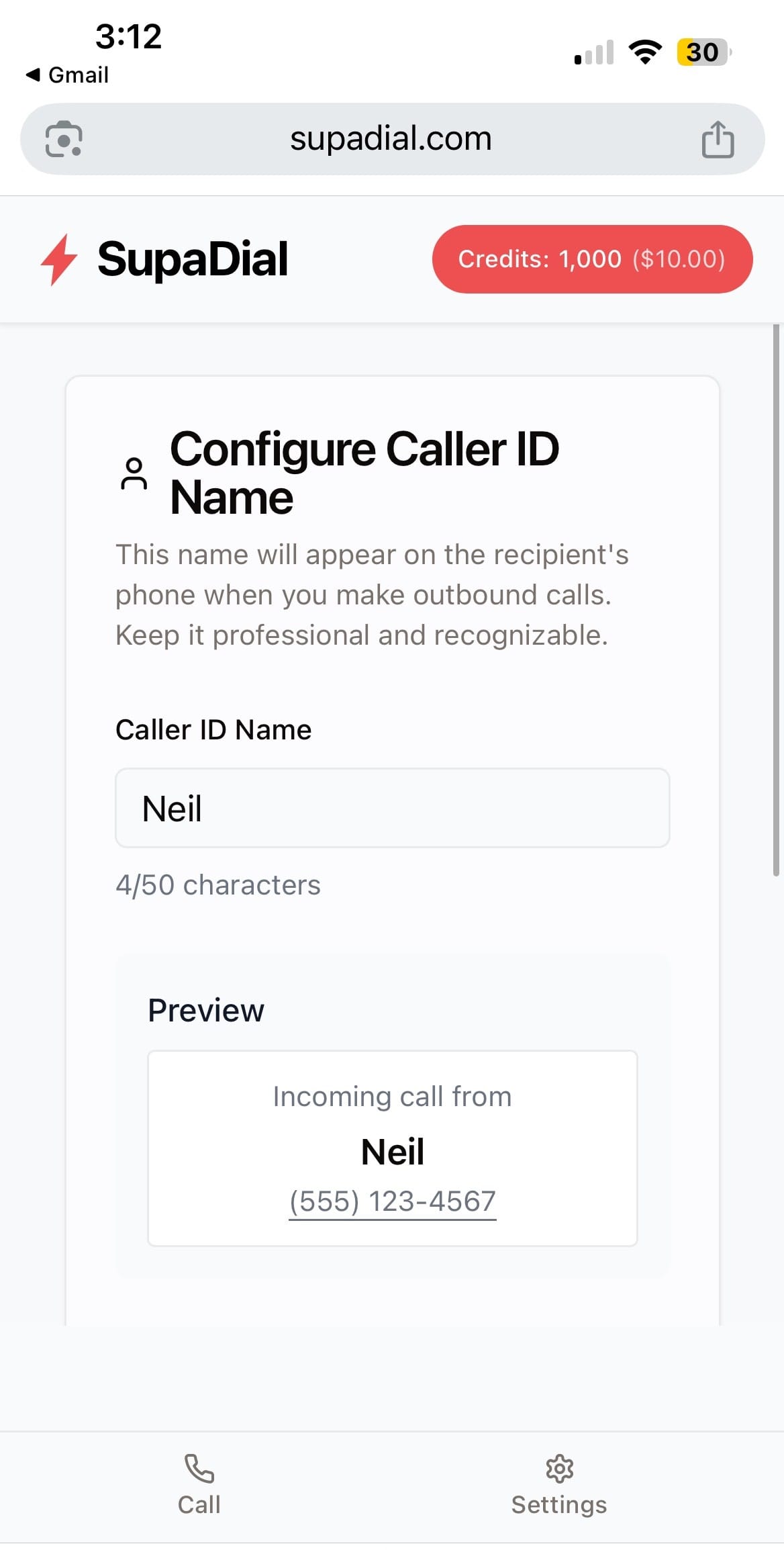
Call Logs That Keep You Accountable
In India, being able to prove how your number is used matters just as much as having the number itself. Supa Dial gives you clear call logs so you can track usage, show transparency, and avoid issues if an app or regulator ever questions your activity. It's having receipts for every call, building trust on both sides of the line. That level of accountability keeps your number safe, compliant, and respected.
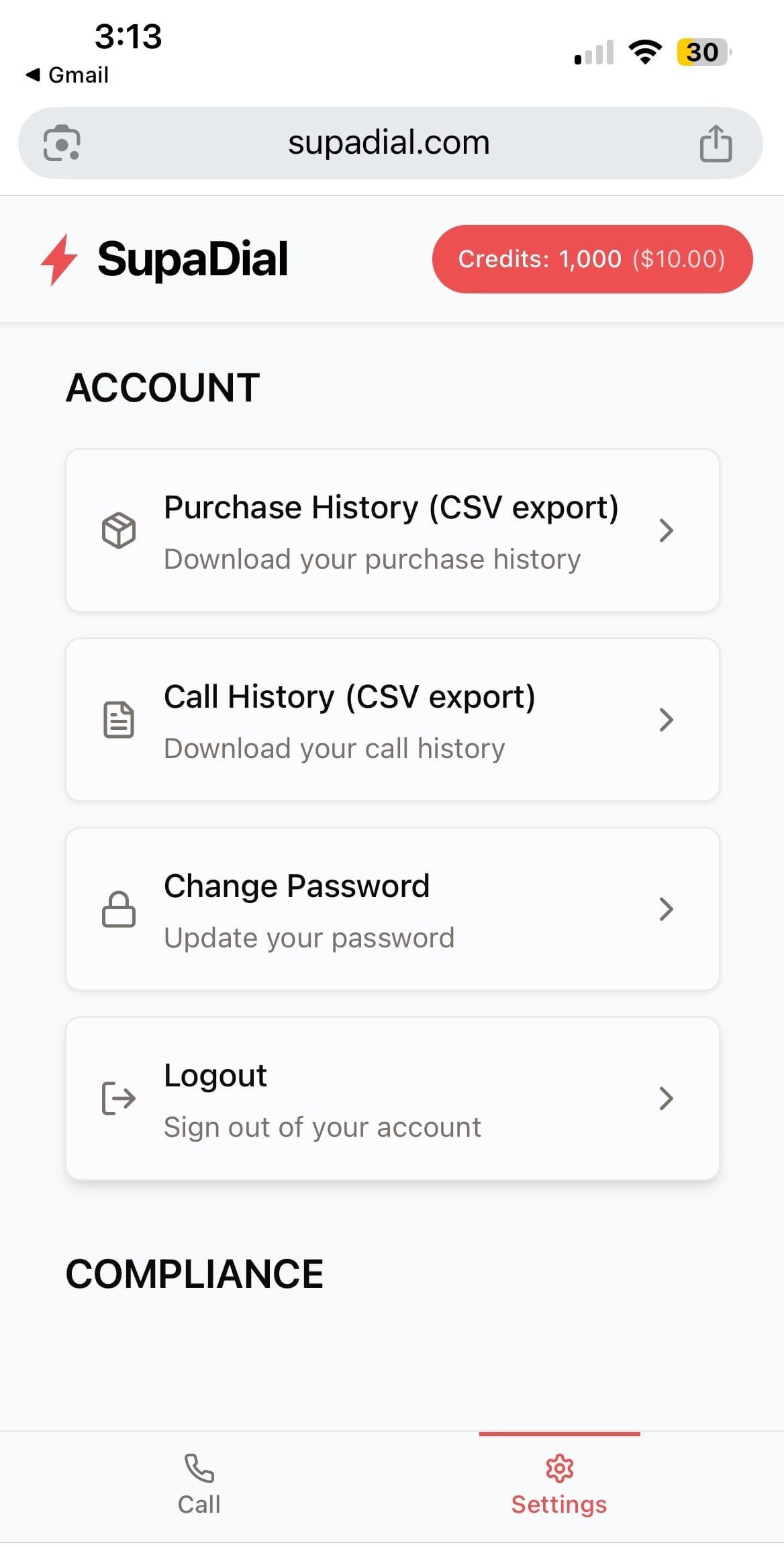
What’s Next For Supa Dial
Supa Dial already makes managing business calls across India simple, but we’re building more for users who never stop creating and connecting. Our goal is to remove friction from every part of your workflow so communication feels seamless and modern. Here’s what’s coming soon.
Texting And SMS
India thrives on messaging. From checking in with clients to verifying deliveries, texts keep everything moving. Supa Dial will soon let you send and receive SMS directly from your number, keeping every message, call, and follow-up in one tidy space.
AI Call Summaries
Between meetings, leads, and updates, it’s easy to lose track of what was said. Supa Dial’s AI summaries will capture key highlights from your calls so you can stay on top of details without digging through notes. It saves time and helps you follow up faster.
Tools For India’s Modern Hustlers
Freelancers, creators, and startups across India work at lightning speed. Supa Dial is building smart tools that help you track calls, manage contacts, and stay organized no matter how busy your day gets. It’s more than a phone number — it’s your communication system built for growth.
Dial India The Right Way
So, are virtual phone numbers legal in India? Yes, as long as you follow the rules around KYC, caller ID, and TRAI oversight. The real challenge is avoiding shady providers that cut corners and put your line at risk. Supa Dial keeps it simple, giving you verified numbers, clean caller ID, and call logs that prove your activity is legit. The next time you wonder are virtual phone numbers legal in India, just remember you can dial India the right way with Supa Dial.
[🔘 CTA Button: Get Your Verified India Number Today]
Dial India The Right Way
So, are virtual phone numbers legal in India? Yes, as long as you follow the rules around KYC, caller ID, and TRAI oversight. The real challenge is avoiding shady providers that cut corners and put your line at risk.
Supa Dial keeps it simple, giving you verified numbers, a clean caller ID, and call logs that prove your activity is legit. The next time you wonder: are virtual phone numbers legal in India, just remember you can dial India the right way with Supa Dial.
Frequently Asked Questions
People in India run into very specific headaches when it comes to virtual numbers. Here are the five most common ones, answered in plain language so you know what is allowed and what to avoid.
Can I use a virtual phone number in India for OTPs?
This is the biggest frustration in India. Many banking apps and government services block virtual numbers for OTP delivery, not because they are illegal but because of security policies.
The law allows virtual numbers, but service providers decide which numbers they trust. Supa Dial works on building credibility so your number stays valid where it matters most.
Are virtual phone numbers legal in India for businesses?
Yes, but Indian businesses must follow strict rules on caller ID and customer verification. You cannot use them for cold calls or mass telemarketing, as TRAI actively monitors and blocks spam.
For startups, small firms, and freelancers, using a compliant virtual number is both legal and practical. Supa Dial ensures your business line in India is safe and credible.
Do I need ID proof to get a virtual phone number in India?
Yes, and that is not optional. Every number in India must be tied to KYC, whether it is Aadhaar, PAN, or passport details. This is how regulators prevent misuse and fraud.
Supa Dial makes the process smoother by aligning with these requirements so your number activates without surprises.
Can virtual numbers be used in India for international calling?
Yes, as long as the provider follows TRAI’s VoIP and interconnect regulations. What you cannot do is bypass licensed networks or use shady call routes. Legal providers like Supa Dial ensure international calling stays within the rules while still giving you affordable rates. You get the global reach without the compliance headache.
What happens if I use a noncompliant virtual number in India?
At best, your calls stop going through. At worst, your account gets blocked or flagged by regulators. India takes telecom misuse seriously, so even unintentional violations can cause trouble. Sticking with a compliant provider like Supa Dial keeps you clear of those risks.
